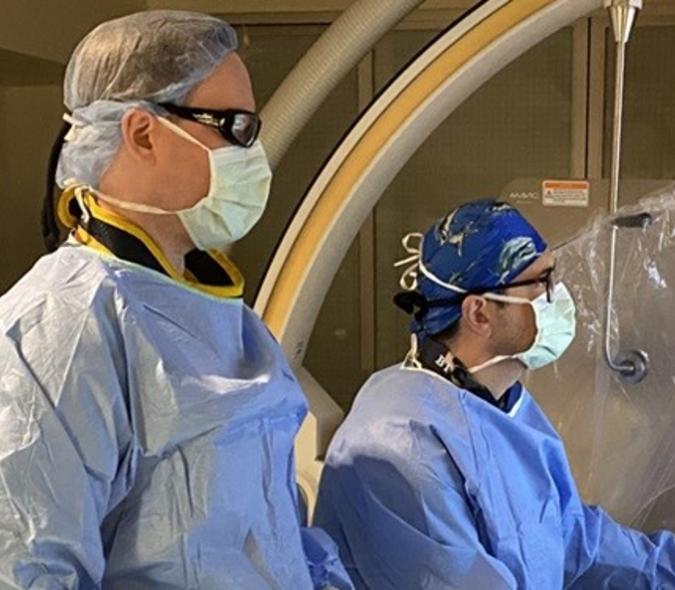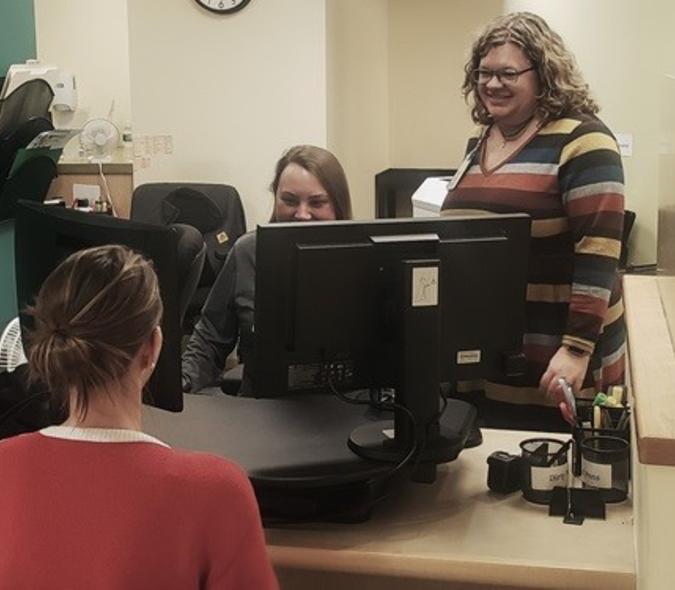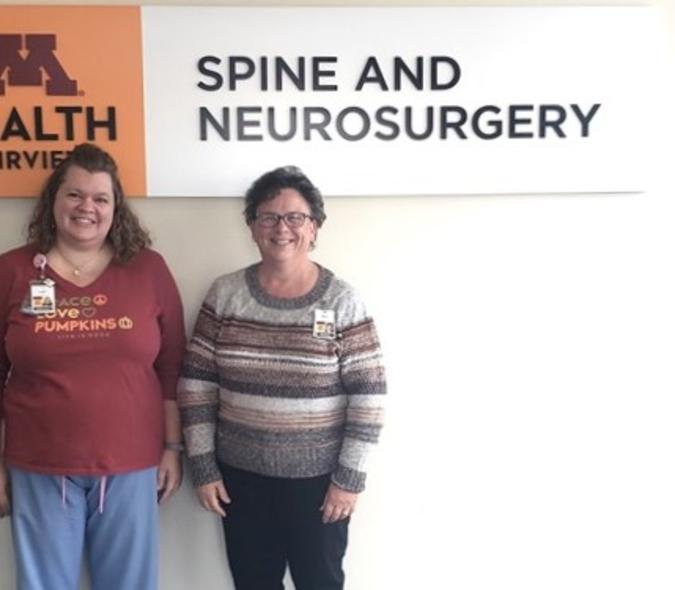
Graduating residents feel well prepared for the privilege of being a neurosurgeon
Thanks to the seven years they spent at the University of Minnesota, Chief Residents David Darrow, MD, MPH; and Coridon Quinn IV, MD; are ready for what lies ahead.
“In neurosurgery, there is a huge combination of people, diseases and areas of the body that involve our expertise,” said Darrow. He and Quinn built their expertise by treating thousands of patients. “We went through graduated supervision and as our attendings gained more confidence in our surgical skills, they allowed us to do more and more,” said Quinn. “When you reach chief residency, you’re essentially running your own cases. Attendings are directly involved but we have the confidence to say that we’ve been there, we can handle this.”
Excellent base
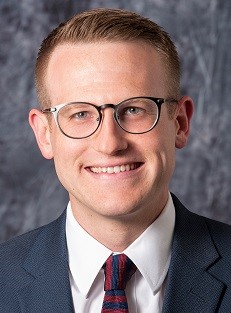
From Darrow’s perspective, the program gives residents an excellent base from which to grow. “In my case, it gave me an opportunity to train as a scientist,” he said. “We’re in a unique position because the program offers enough flexibility to prepare you for whatever you desire in the long run.”
Seven years is a long time and Darrow (pictured at left) and Quinn agree that it went by fast. They accumulated experiences during those years that were both memorable and challenging.
Never give up
For Quinn, a particularly memorable event occurred during his third year of residency. A mom and her children were brought to Hennepin Healthcare in Minneapolis, MN, following a car accident. All of them were in the ICU, but only the mother needed surgery. “We rushed her to the OR and removed an epidural hematoma,” said Quinn. “She was almost dead. We nursed her in the ICU for about a month.” Despite everything, she wasn’t recovering as well as expected and was eventually moved to a long-term care facility. “In such circumstances, we have to tell the family what we see based on our experience. We told her husband that it didn’t look good, but he never stopped hoping.”
A year later, the mother came back to the hospital and gave Quinn a big hug. “She was walking and talking and able to take care of her two daughters,” he said. “She couldn’t thank me enough. Her case taught me to never give up on a patient.”
Asking Darrow what was most memorable about his residency is like asking which grain of sand he will remember. “Neurosurgery residency is such a life-changing time,” he said. “You come in eager and motivated and know you have a lot to learn. But it’s about much more than just the surgical practice, which pales in comparison to everything you learn about what it means to be human, how to communicate with families in an emergency, to understand what’s really important and how to tailor that for each patient.”
Important relationships
Both residents believe that the people they worked with made an enormous difference during their time at the U. “I’ll never forget the other residents; they will always be part of our family,” said Quinn. “And the attendings will be our mentors as we move through our career.” Darrow agrees, adding, “I have no doubt that if in the future I have a challenging case, I can pick up the phone and call any one of my faculty. They would be totally open to that. That’s the kind of environment we have at Minnesota.”
As with many such programs, Darrow and Quinn experienced a great deal of change as people came and went. They lost a beloved colleague in January to a skiing accident. “I can’t tell you how awful it was to lose Molly [Hubbard],” said Darrow. “It’s still awful. I was fortunate to spend a lot of my residency with her.” They also experienced changes in important leadership positions, including Department Chair and Residency Program Director. “We persevered through it all, continued to learn and take care of patients, and kept the team going,” said Quinn.
COVID impact
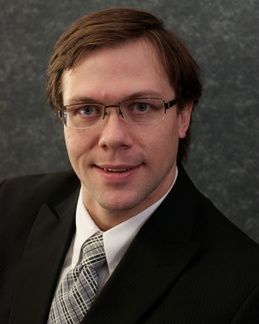
The COVID-19 pandemic presented multiple challenges for the residents, including not being able to attend graduation. For Quinn (pictured at left), it made his future less certain as hospital systems put hiring freezes in place because of the pandemic’s financial impact. “I am going to complete a one-year endovascular fellowship at the U following graduation, which gives me some time to plan,” he said. “I believe it will also give me a leg up on other candidates.”
Darrow, who knew from the start he wanted to go into neurosurgery to help people with mental health issues, will join the U’s Neurosurgery Department faculty in August. Thanks to support from MnDRIVE (Minnesota’s Discovery, Research, and InnoVation Economy) and the Institute of Translational Neuroscience, 75 percent of his time will be devoted to research.
Continuing research
In his new role, Darrow will continue the scientific work he started with Alex Herman, PhD, Department of Psychiatry and Behavioral Sciences. The Herman Darrow Lab brings together neurosurgery, psychiatry, and biomedical engineering to work with human subjects who have implanted electrodes, tackling diseases such as chronic pain, depression, anxiety, and addiction. His work with the E-STAND (Epidural Stimulation After Neurologic Damage) spinal cord injury study will also continue at three locations in the Twin Cities.
When they think about advice they would offer new residents or anyone thinking about getting into neurosurgery, Quinn starts with the human element. “No matter how hard the times get, we’re always here for one another,” he said. “I tell residents who are going through a rough patch to just keep going. The sun will always rise, and the patients will continue to need us.”
Look at the road map
Darrow tells potential residents that, “it’s important to realize that no matter what you do in the long run, you have to be an excellent general neurosurgeon. When you accept that and are prepared to train, you will reach that goal.” He added that the U of M residency program is explicitly designed. “There is a road map in place and it’s important to understand it so you can excel,” he said. “Sometimes it may not be clear what you’re supposed to be learning but the road map helps with that.”
Becoming a neurosurgeon takes a long time and it can be lonely. “You must be self-sufficient because there aren’t that many of us,” said Darrow. “It’s a real privilege to be a neurosurgeon.”
